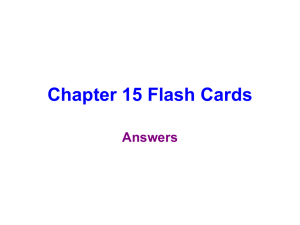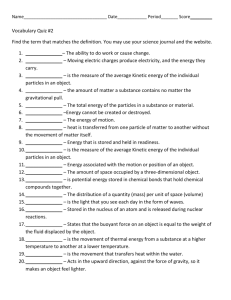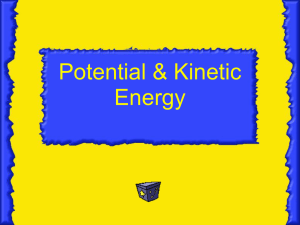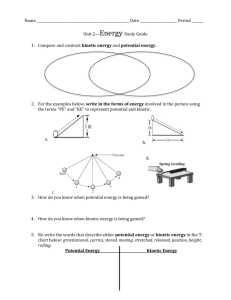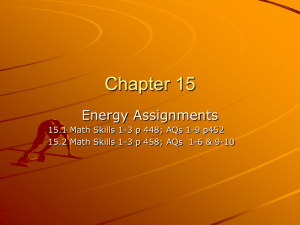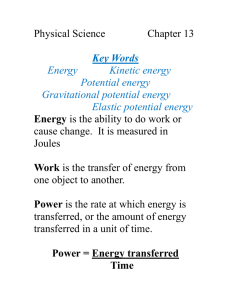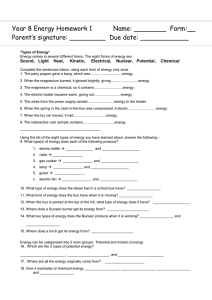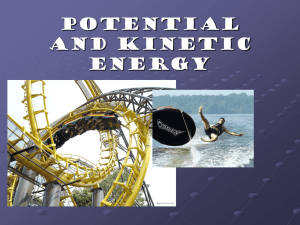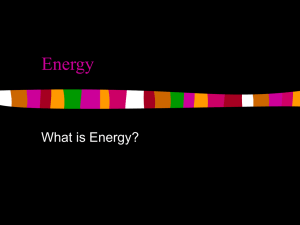Momentum
advertisement
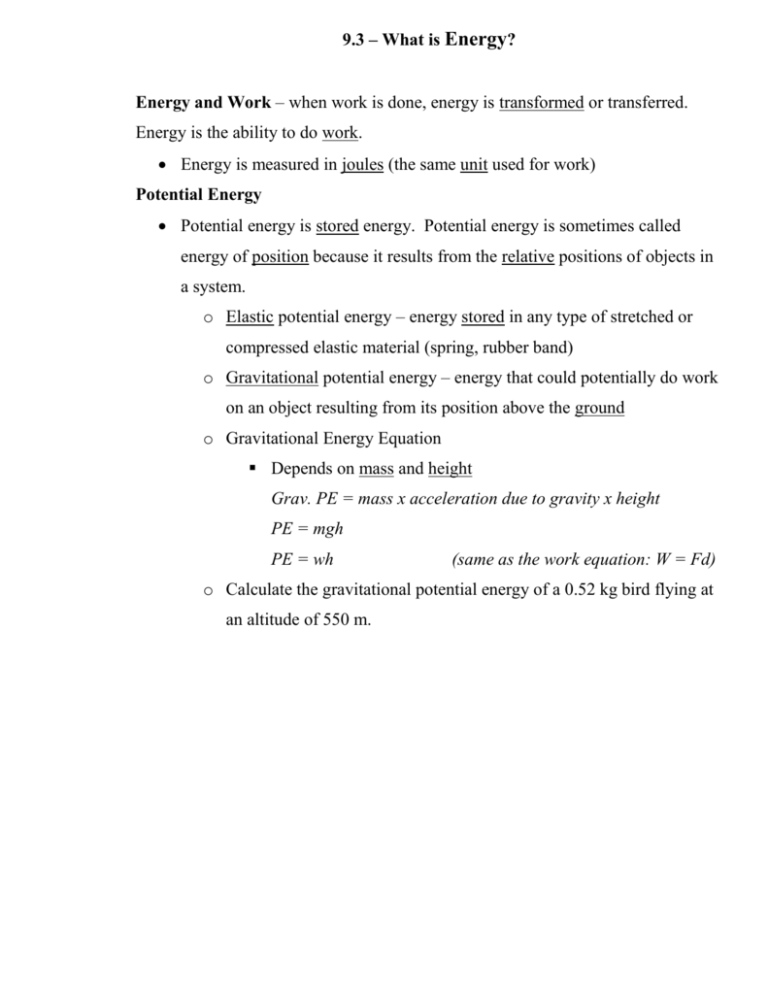
9.3 – What is Energy? Energy and Work – when work is done, energy is transformed or transferred. Energy is the ability to do work. Energy is measured in joules (the same unit used for work) Potential Energy Potential energy is stored energy. Potential energy is sometimes called energy of position because it results from the relative positions of objects in a system. o Elastic potential energy – energy stored in any type of stretched or compressed elastic material (spring, rubber band) o Gravitational potential energy – energy that could potentially do work on an object resulting from its position above the ground o Gravitational Energy Equation Depends on mass and height Grav. PE = mass x acceleration due to gravity x height PE = mgh PE = wh (same as the work equation: W = Fd) o Calculate the gravitational potential energy of a 0.52 kg bird flying at an altitude of 550 m. Kinetic Energy – the energy an object has because of its motion Kinetic energy depends on mass and speed o Kinetic Energy Equation KE = ½ X mass X velocity squared KE = ½ mv2 o Calculate the kinetic energy in joules of a 1500 kg car moving 18 m/s. Kinetic energy depends on speed more than mass (speed is more important) Other Forms of Energy – the sum of potential energy and kinetic energy in a system is called mechanical energy. Mechanical energy is generally thought to be the potential and kinetic energy that affects motion on a large scale (you can see the motion happening.) Thermal Energy – atoms and molecules have kinetic energy (related to an object’s temperature) Chemical Energy – Chemical reactions involve potential energy. (The amount of chemical energy associated with a substance depends in part on the relative positions of the atoms it contains.) Light Energy – Living things get energy from the sun. (Photosynthesis turns solar energy into chemical energy) Light can carry energy across empty space. Nuclear Energy – The sun gets energy from nuclear reactions. (Nuclear energy is a kind of potential energy stored by the forces holding subatomic particles together in the nuclei of atoms.) Electrical Energy – Electricity is a form of energy. (Electricity results from the flow of charged particles through wires or other conducting materials.)
